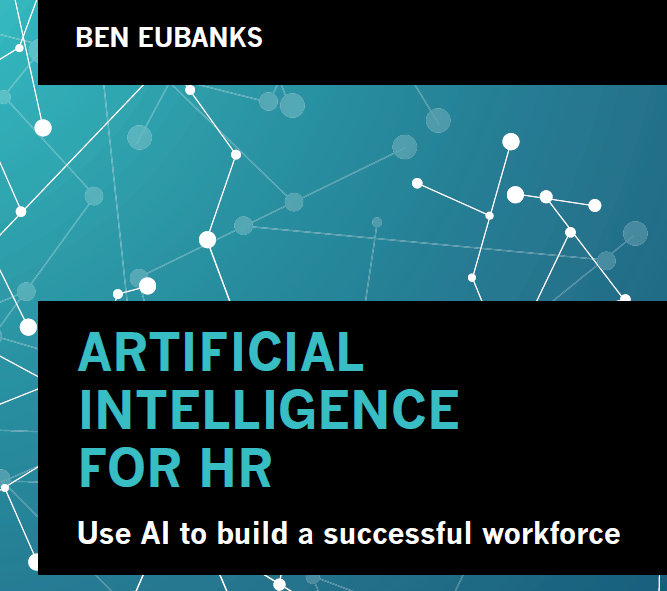
Cover design for the new book
[Update 2019: The book is OUT! Artificial Intelligence for HR, which highlights the key skills we need to compete with machines in recruiting, engagement, and more, is getting rave reviews. Check it out here.]
I’m in the middle of writing a book. Yes, a BOOK! I’m having fun and writing a ton, but I’m also looking for a little help. See, I need some examples from vendors and employers to help me fill in a few case studies and would love to feature you in the book if you’re a fit for my requirements. If you want to be notified about the book, please make sure you subscribe for updates to the blog.
The survey below is open to anyone and I would appreciate it if you would respond. This goes doubly for anyone looking to be highlighted (vendor or practitioner) in the book.Â
Please take our 1-minute survey
- Vendors: I’m looking for any HR, recruiting, talent, or learning software companies that are using machine learning, natural language processing, deep learning, etc. in their products for purposes of automation or augmentation. I need examples across the spectrum so while I know talent acquisition is going to be heavily represented (and that’s fine) I would also like to talk with those serving talent management, workforce management, learning management, and other HR audiences.
- Practitioners: I’m looking for companies USING these kinds of software tools. Is your recruiting tool doing automated sourcing for you? Is your workforce scheduling tool automatically offering shifts and reducing the hands-on work your team is doing? Maybe your talent management system is giving you red flags on which of your high-value workers are in danger of leaving the company? Is your learning tool recommending highly personalized content for workers based on what their peers are consuming? If you’re using a modern piece of HR technology, there’s a chance you are seeing some of these benefits. I’d love to feature you in the book whether as a small segment in a chapter, a case study, etc. Lots of opportunities to highlight the great work you’re doing as an HR leader!
Click here if you are interested in participating and I will be in touch soon. Thanks so much!
Why write a book about artificial intelligence in human resources?
I’ve had a few people ask me why this topic. In truth, I see it as a public service. So much of what I read (and you probably, too) around how AI will impact human resources is written by the following types of people:
- People who have never worked in HR
- People who want attention by latching onto a “hot” topic
The problem is that very few of these pieces I’m seeing actually talk about solving problems. Instead they talk about theory or high-level impact, which doesn’t help you do your job any better. I’m trying to bring a highly practical perspective to the topic, which is why I’m looking for company stories and examples to weave into the content. I will have to give a basic primer on AI and how it works, but that’s just to get everyone to a basic level of understanding. The vast majority of the book content will be focusing on ACTUAL problems HR can solve across performance, learning, and recruiting.
Plus it’s my chance to write a book for a traditional publisher. I’ve published a Kindle book but have not had this chance previously, so I’ll be sharing the experience and what I think about the process. Look for me to talk more about this topic as the year goes on!